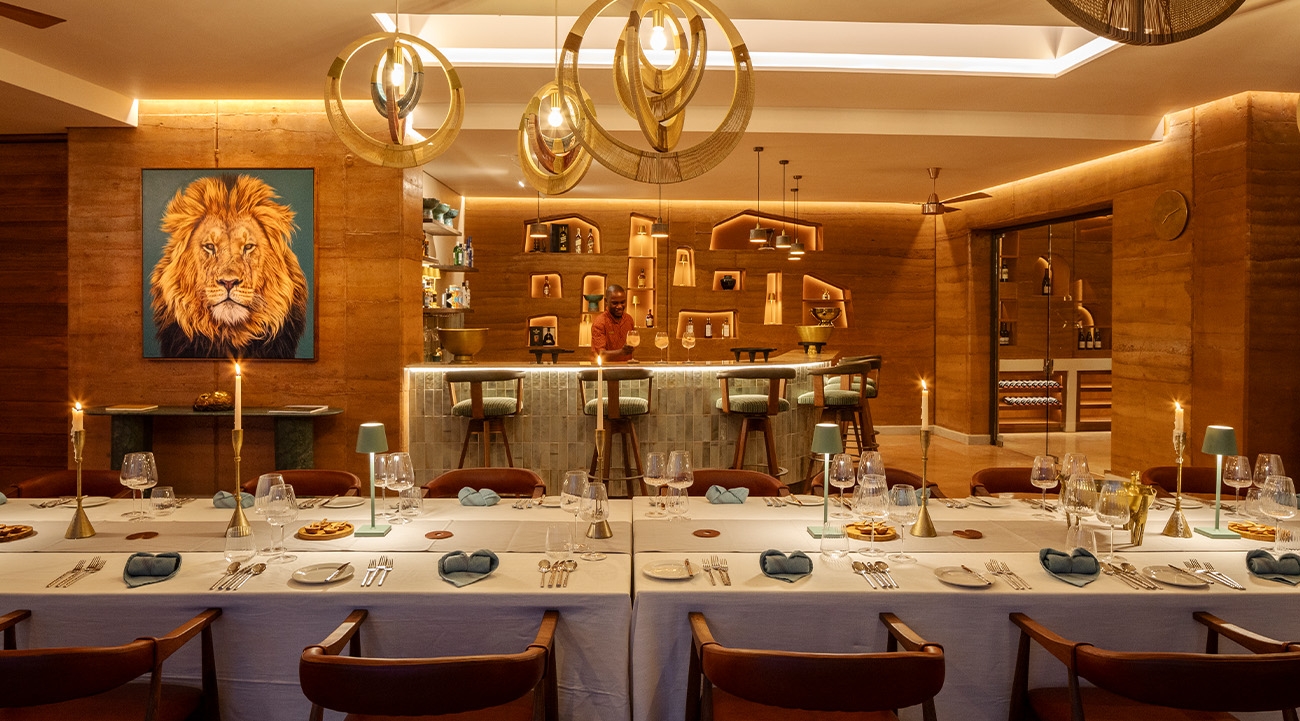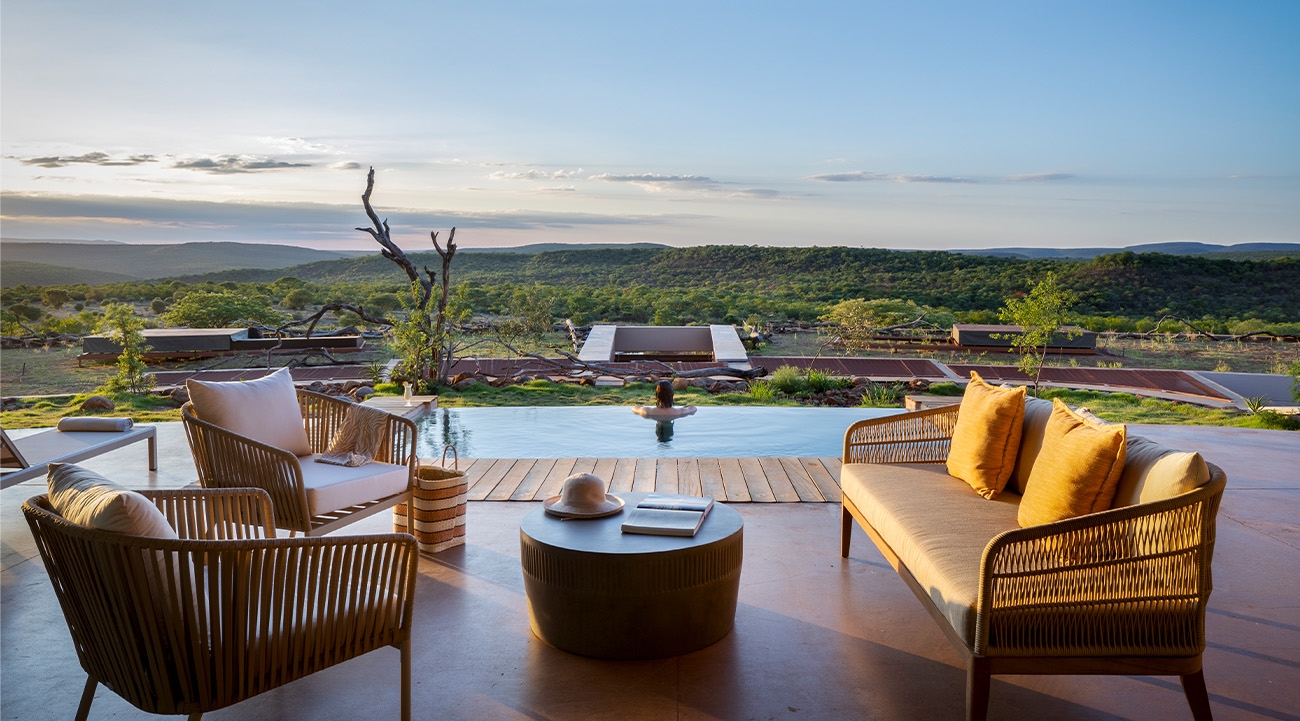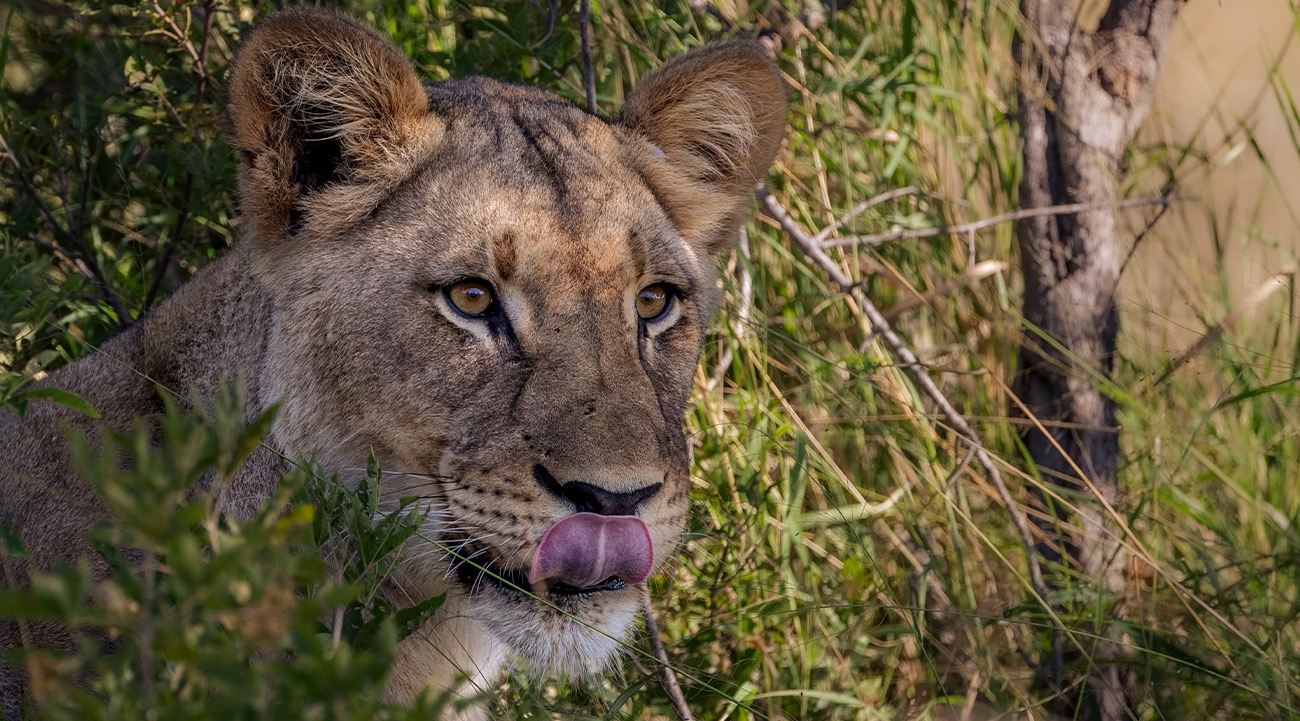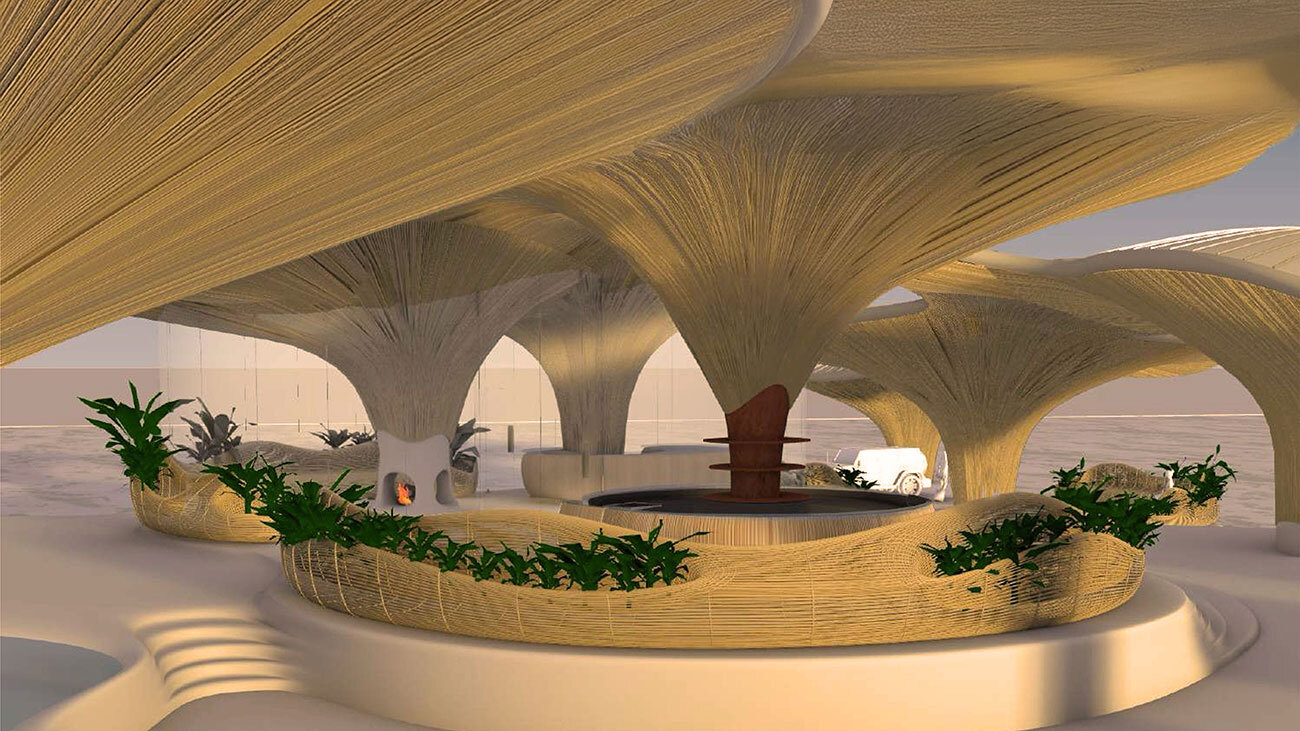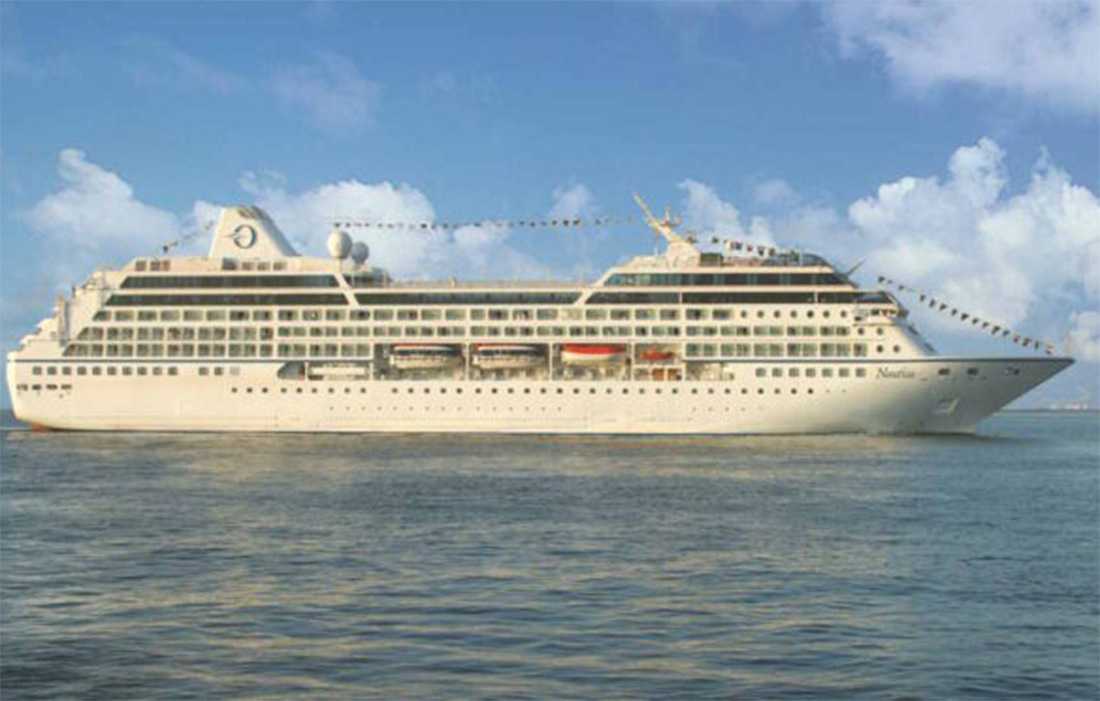Close encounters and heartwarming hospitality in South Africa
That’s a very unique experience,” our guide, Liam, whispers, “to come face to face with a lion.” When I climbed into the back seat of our vehicle earlier today, I hadn’t realised I was putting myself centre stage for an inspection from one of Africa’s apex predators. From our spot, we’re watching as a mother and her two cubs snooze in the South African sunshine, bellies full from last night’s kill.
After a few minutes, the mother rolls over, yawns and gets to her feet. She begins to prowl towards us and then, half a metre from where we’re parked, she stops. The lioness looks at me inquisitively and we lock eyes.
Remembering what we’d been told, I don’t move a muscle. After what feels like a lifetime, she saunters off, flopping down in her new sunbathing spot. I let out an audible sigh of relief. “You handled that very well,” Liam says as we drive away – a comment I take more pride in than perhaps I should.
We’re still buzzing with adrenaline from our close encounter an hour later when we arrive at Melote House, our home for the next few days. As we wind our way along dusty orange roads flanked by vast, zebra-dotted plains, it feels as if there’s nothing but wilderness for miles.
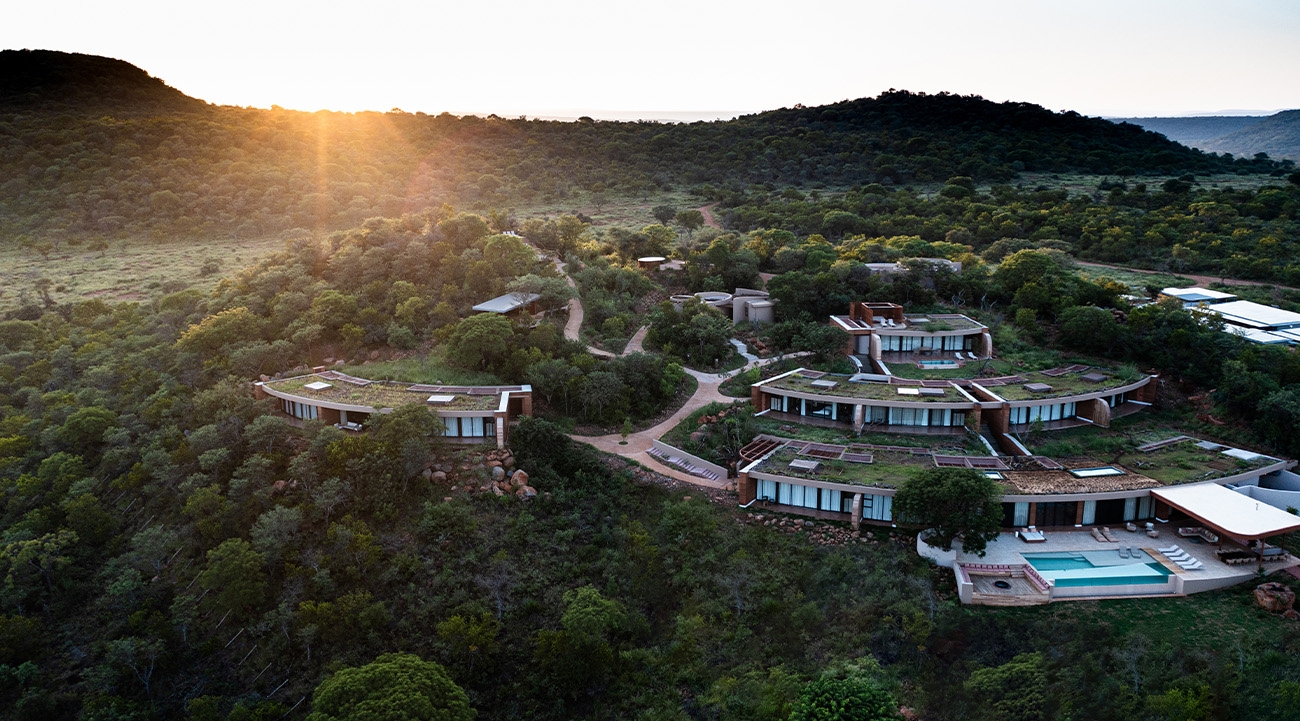
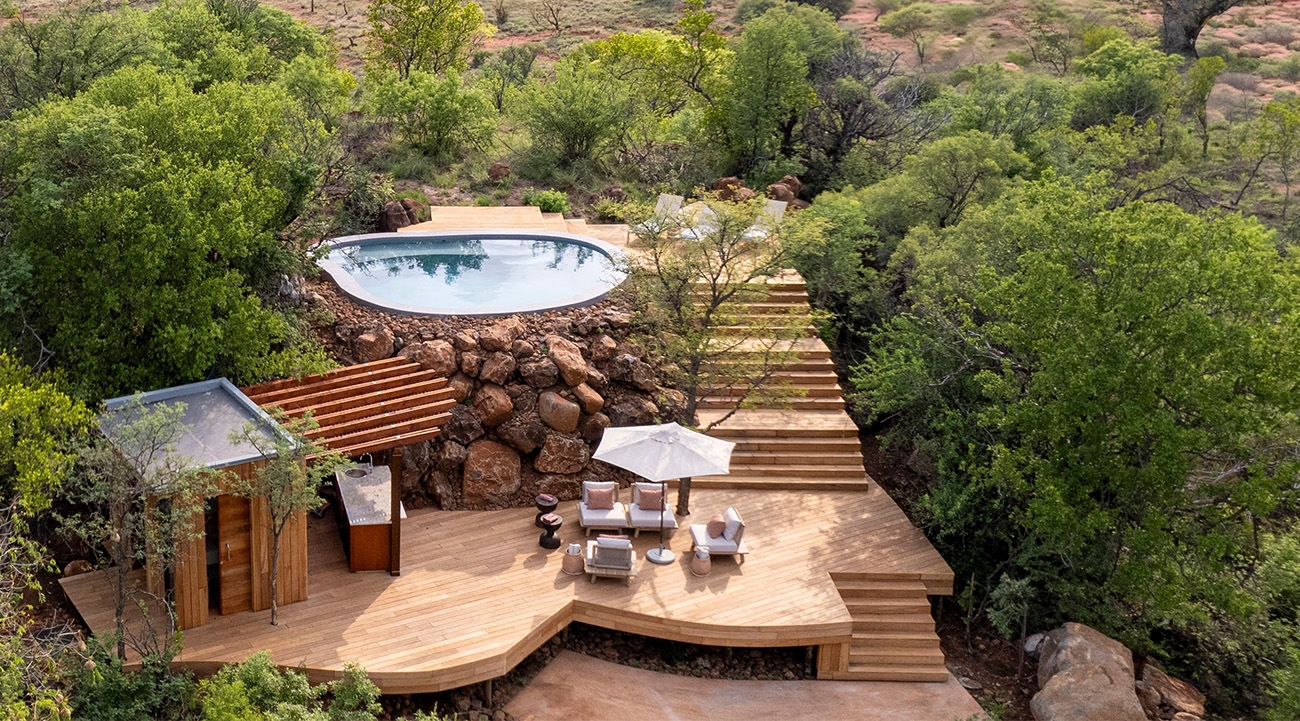
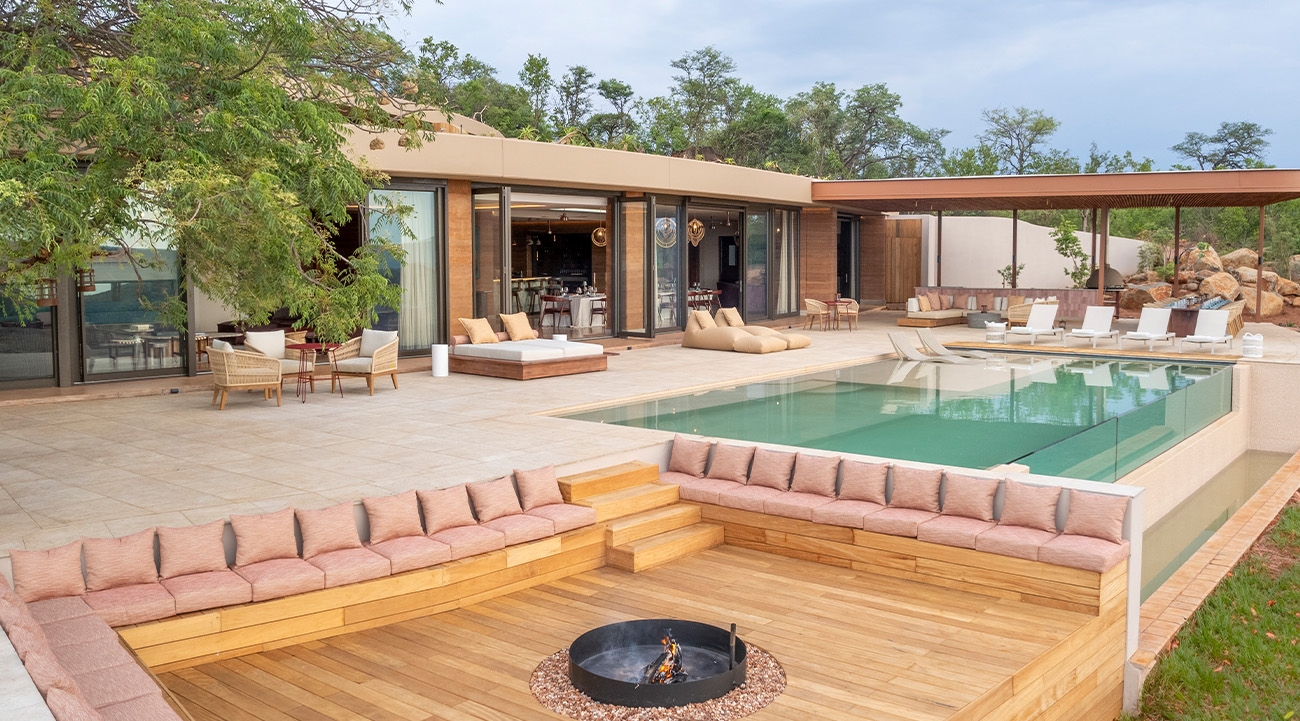
Tucked away at the top of a hill, Lepogo Lodges’ newest property is unassuming. Upon arrival, all we can see is a stilted wooden boardwalk and the beaming face of manager David, who welcomes us with cold towels to refresh our post-long-haul-flight faces (we’d opted for the three-hour drive from Johannesburg, but there’s also the option to fly into the reserve’s private airstrip).
Luckily – or, more probably, thanks to impeccable planning from the Lepogo Lodges team – we’ve arrived just in time for sunset.
After we make our way inside, and with a chilled glass of champagne in hand, we watch the sun slip below the horizon, the vast Lapalala reserve sprawling out beautifully in every direction.
Wild beauty
Lapalala Wilderness is a conservation reserve in South Africa’s Limpopo region, where 50,000 hectares of open plains, sandstone cliffs and the Waterberg mountains are permeated by the Palala and Kgogong rivers.
A patchwork of terrains and habitats, all manner of birds and wildlife call Lapalala home, including the ‘awesome eight’ – the term coined for the big five plus cheetah, wild dog and pangolin.
Nestled within the wild, Melote House is one of just two commercial lodges on the reserve; the other is sister property Noka Camp. Five years after Noka was established, Melote opened its doors in January, ready to welcome guests on an exclusive-use basis.
The house is perched above a watering hole, and one of the boardwalks that connects the different parts of the lodge meanders down from the main decking area to a lookout spot for watching on as giraffe, rhino and impala wander through.
The property itself is set across multiple tiers, all integrated into the side of the mountain. The main level – our sunset champagne spot and from where the lookout deck can be accessed – houses the living area, dining room and bar, with floor-to-ceiling windows and sliding doors that open onto an outdoor area and infinity pool.
My room, one of four Marula Suites, is on the next level up. There are some home-baked goodies (rocky road and cheese biscuits) waiting upon my arrival, but what really steals the show is the stargazing window directly above the bed.
At the touch of a button, the ceiling blinds open to reveal a blanket of twinkling stars, and the lodge’s remote location means there’s virtually no light pollution to interrupt the magic. The Marula Suites sit side by side, while the Seringa Suite can be found on the main deck.
Melote’s largest room, the Baobab, crowns the property, offering far[1]reaching views from its private infinity pool and sky bed.
The main house can be rented on its own for a maximum of 12 guests, or clients can opt to add outbuilding The Cottage – which has two further suites and its own living and dining area – onto their booking to bring Melote’s total capacity to 16.
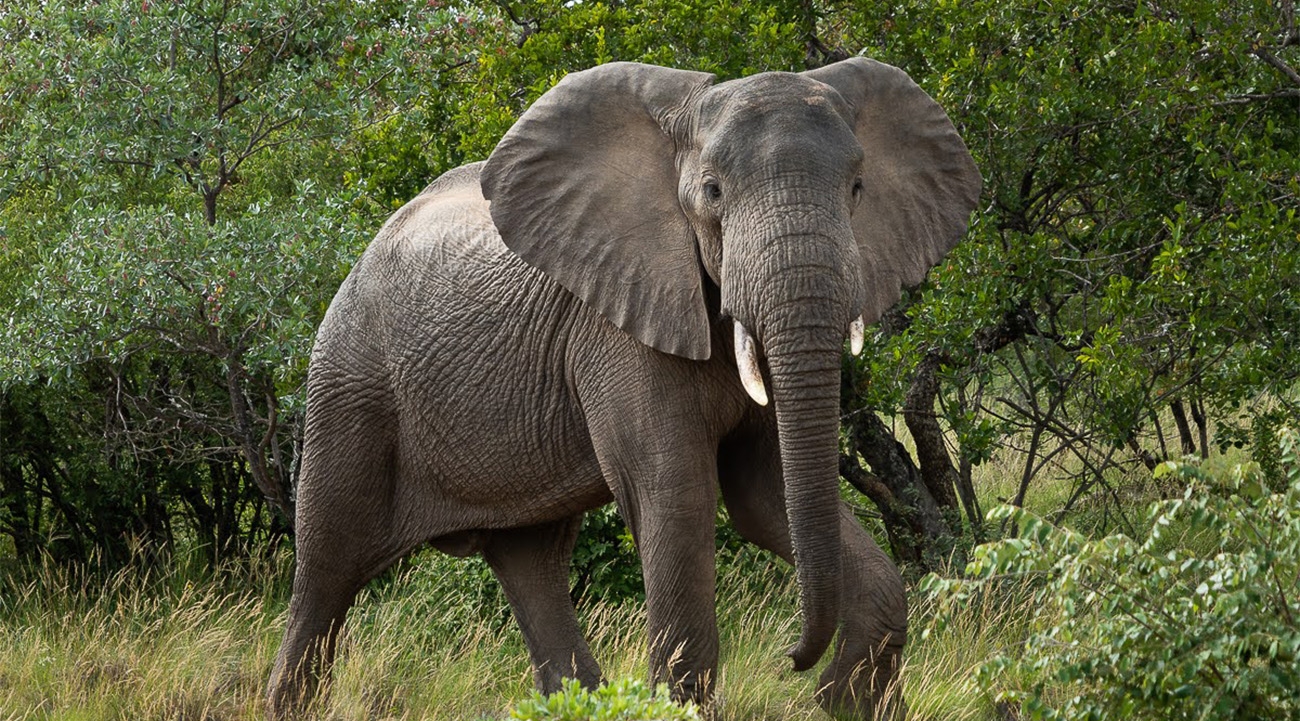
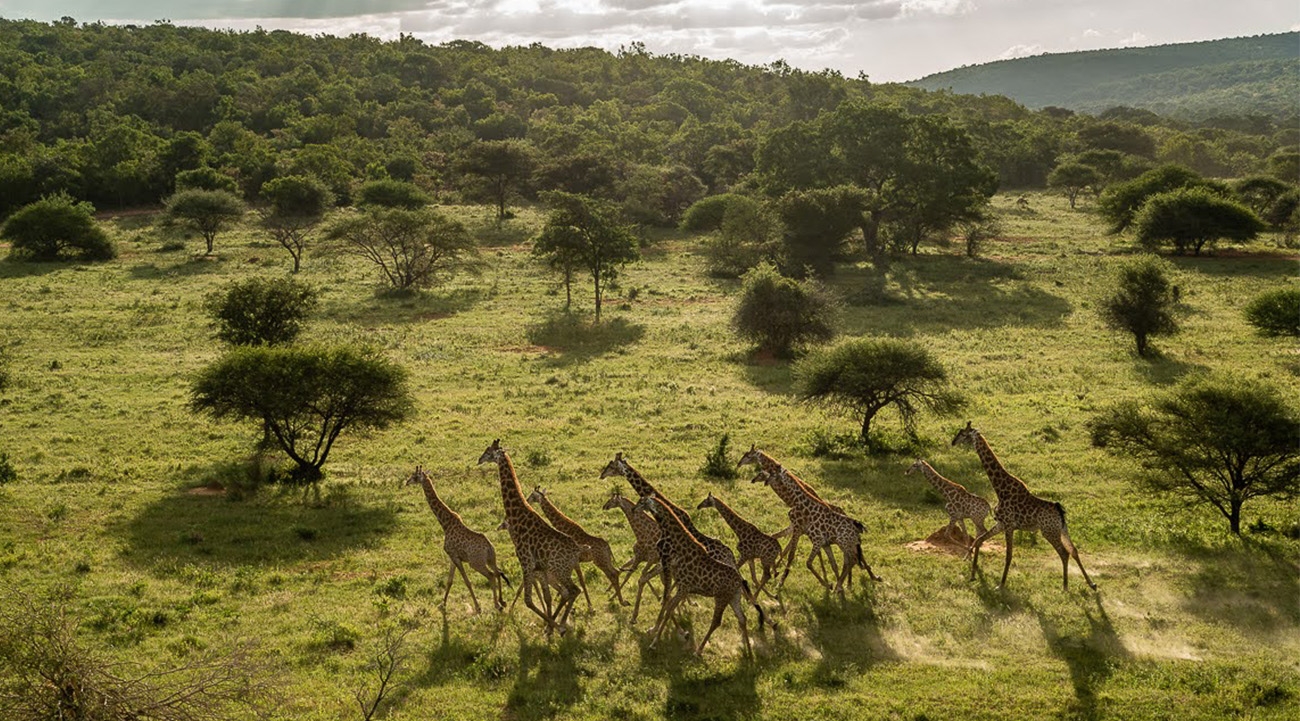
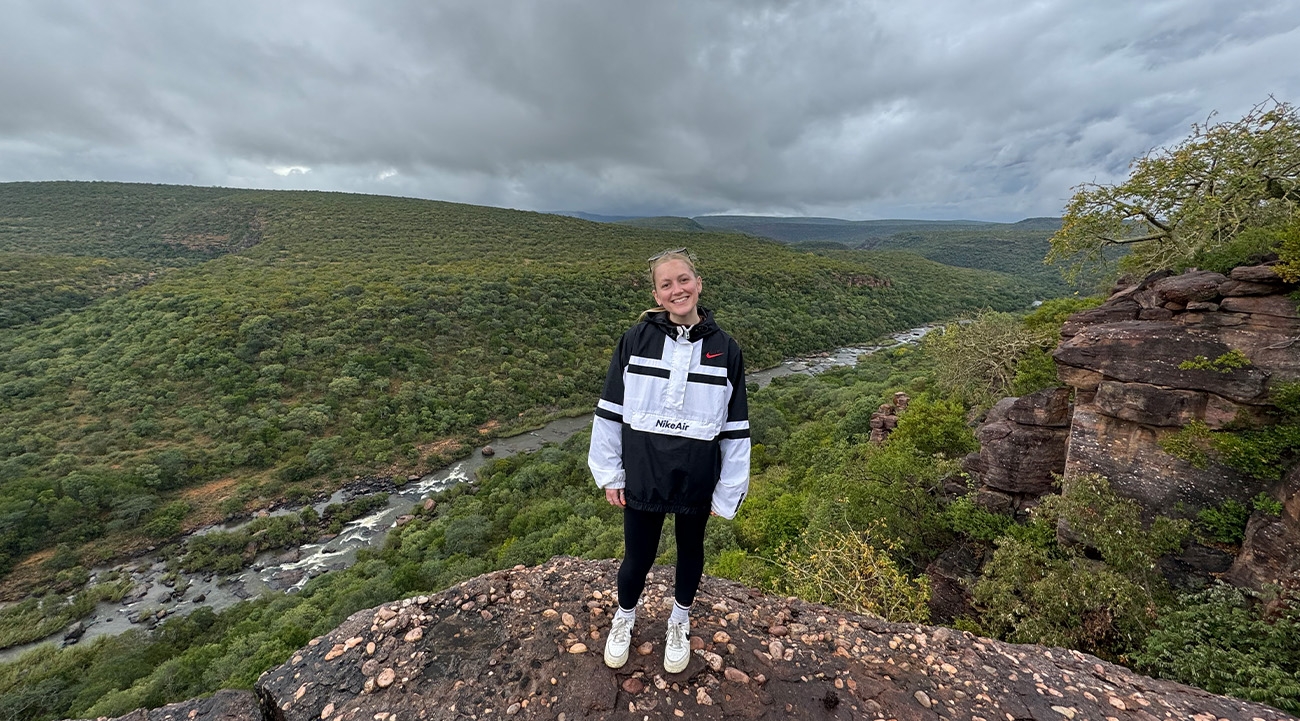
Design details
I soon realise that Melote’s biggest design inspiration is the bush itself. A pleasing mix of earthy tones, exposed wood and stone structures pay homage to the lodge’s natural surroundings, seamlessly blending the outdoor terrain with the indoor sanctuary the house offers.
The walls are decorated with local artwork, including show-stopping pieces by South African wildlife artist Clive Walker, whose intricate paintings of the bush have been transformed into fabrics that adorn the wardrobe doors in each suite.
The design of Melote isn’t just inspired by the wilderness, but also seeks to protect it. As we wander along the boardwalks, we’re shown the living roofs that invite small animals to graze, helping to integrate the lodge into the bush and minimise disruption to the surrounding habitats.
Heartwarming hospitality
The three days we spend at Melote have a unique charm about them. As we cruise through the plains, stopping to let elephants pass or to watch cheetahs doze, it’s impossible not to feel at peace.
And, with only two lodges in the reserve and no external visitors permitted, the tracks are quiet and sightings intimate. But what makes this experience truly memorable is undoubtedly the Melote staff, who ensure there are extra-special touches aplenty.
When I return to my room every night, I’m greeted with a fresh batch of baked goodies, as well as some reading material – a guide to spotting stars, a light-hearted story about one of the animals we saw that day or, on our final night, a personalised Odyssey-style poem that recounts the magic of our trip.
In the evenings, Elias and Natie behind the bar remember our favourite drinks (a gin and tonic for me, please) and ensure it’s served atop a coaster engraved with our initials. Of course, the surprises aren’t just reserved for the lodge.
After a cruise along the Palala River on our last night, we hop into our vehicle thinking we’re going back to the lodge for dinner. Two minutes later, we turn a corner to be greeted by a pop-up bar, complete with canapés, chilled champagne and the smiling faces of David and Elias.
As we enjoy our sundowners, I feel sad to be going home tomorrow. When it finally is time to leave and staff line the boardwalk to sing a traditional farewell song, not only do I feel sad, but also extremely lucky. Lepogo Lodges’ operations director, Kate Hughes, says the goal with Melote is to provide “an unforgettable experience in Africa at the highest possible level” – and they can rest assured that I’ve had exactly that.
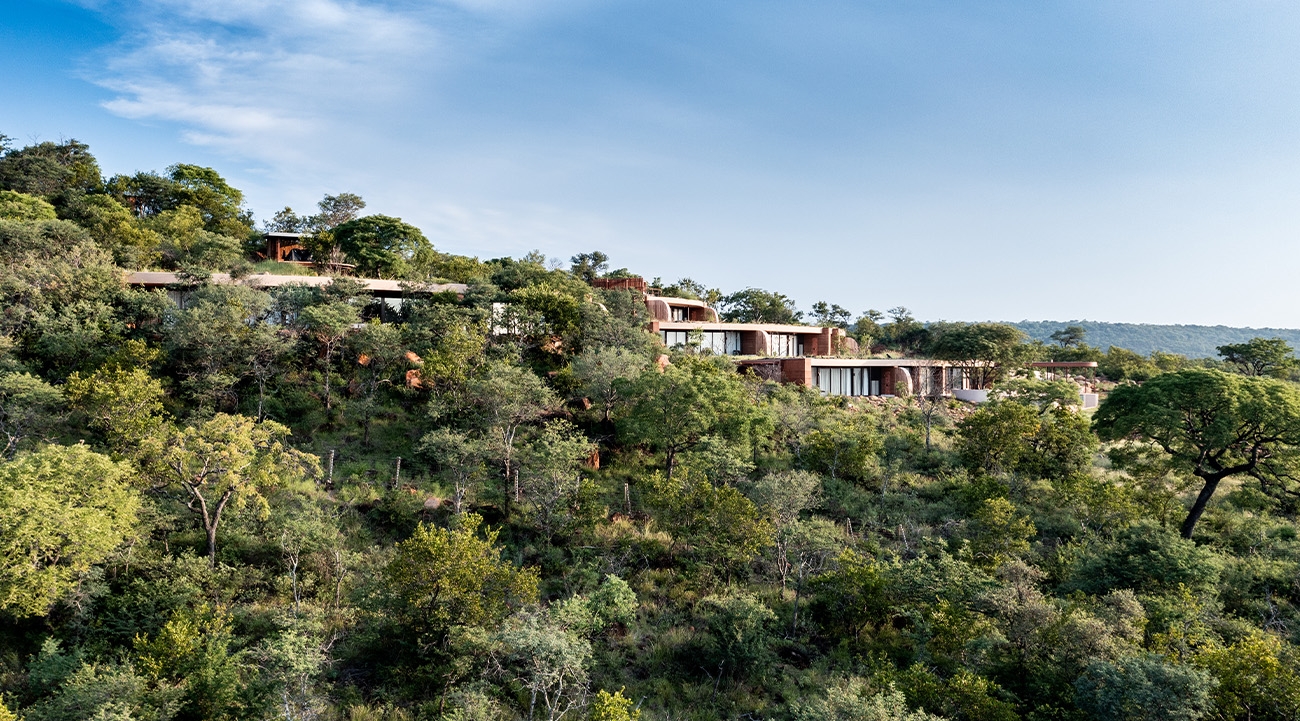
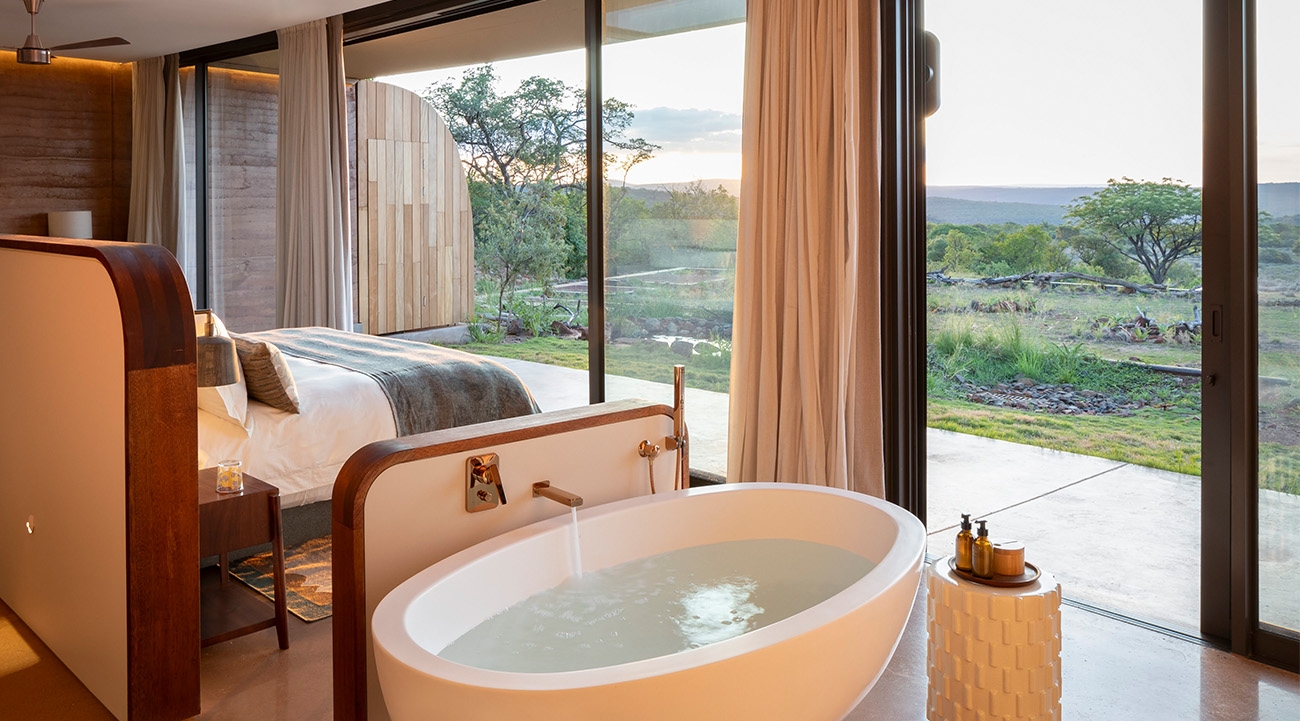
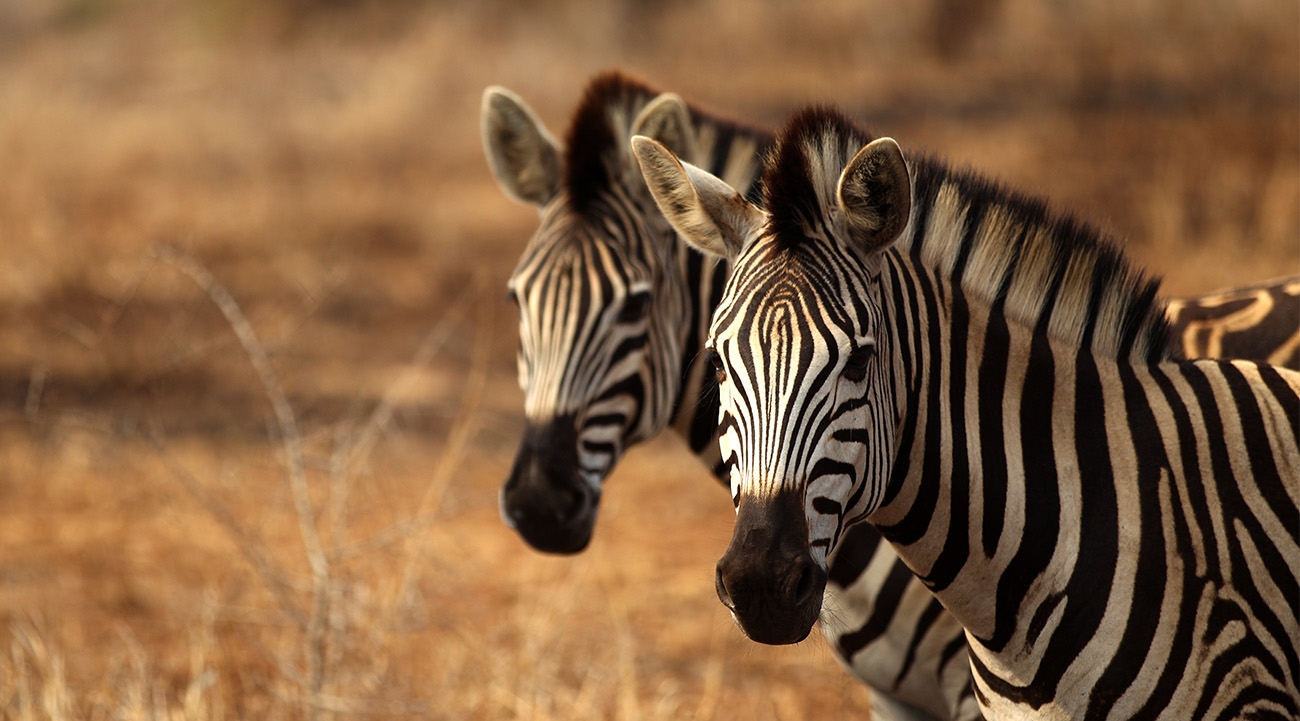
Local wildlife
When it comes to sustainability, Lepogo Lodges has quite literally put its money where its mouth is. Melote House is self-sufficient and every profit made is reinvested into the reserve to protect the wildlife and its habitats.
Having taken the ÔlepogoÕ part of its name from the Sotho word for cheetah, it’s no surprise that the team is particularly passionate about the preservation of this vulnerable species.
As of 2023, the family that owns Melote House and Noka Camp has aided the successful reintroduction of this endangered animal, and is working with the Lapalala team to establish its status as a centre of excellence for the release of wild captured cheetahs.
In recent years, the reserve has also seen the reintroduction of a herd of 50 buffaloes and the birth of endangered wild dog pups, which are monitored and protected by the Lepogo and Lapalala teams.
Book it: All-inclusive nightly rates vary from £12,000 to £16,000, depending on the season and number of guests.
lepogolodges.com

